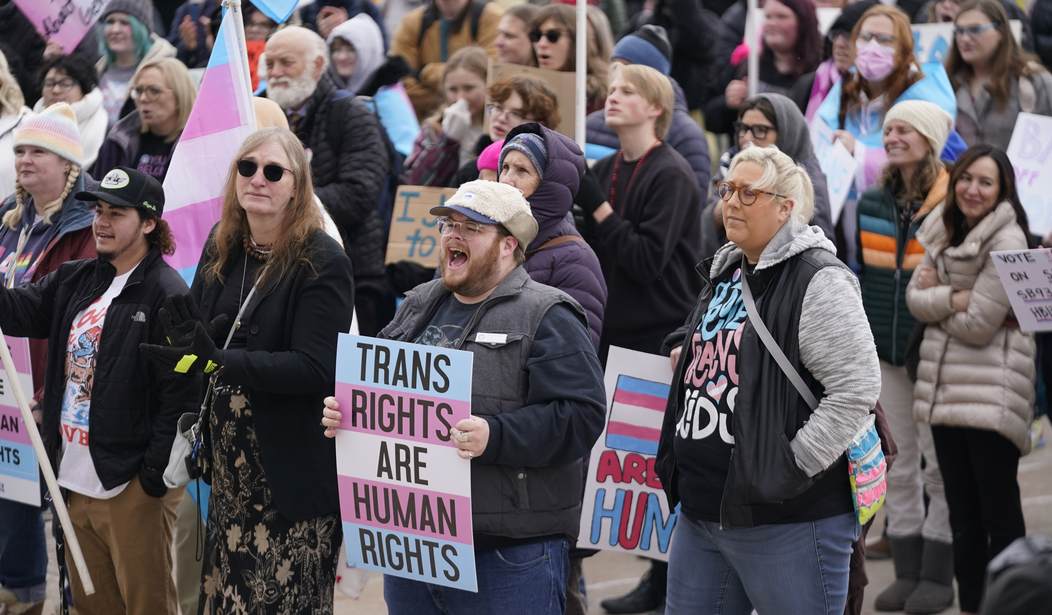As transgenderism continues to be a lightning-hot controversial issue, including among members of the medical profession, a U.S. Court of Appeals has handed down a major victory for free speech in a unanimous decision in a case involving a college professor's right to publicly speak out against treatment for minors diagnosed with gender dysphoria.
Writing for the Sixth Circuit court, Judge Andre Mathis found that University of Louisville officials could not claim immunity in the denial of free speech protections of Dr. Allan Josephson or other faculty members.
George Washington University Law School Professor and Fox News senior legal analyst Jonathan Turley wrote that the decision is particularly important because it deals with qualified immunity and reaffirms liability for the denial of free speech protections.
Josephson was a professor of psychiatry at the medial school and had success at the school after serving as the Division Chief of the Division of Child and Adolescent Psychiatry and Psychology at the University of Louisville for nearly 15 years. He has 35 years of experience in the field.
His apparent good standing at the school changed dramatically when he participated in a discussion of the treatment of childhood gender dysphoria at an event in October 2017 sponsored by a conservative think tank, the Heritage Foundation. He expressed his reservations with some treatments and his public comments were reported back to his colleagues.
Dr. Josephson argued that children are not mature enough to make such major, permanent decisions and that 80-95 percent of children claiming gender dysphoria eventually accept their biological sex over time without such treatment.
In addition to the issue of free speech and First Amendment rights, which we'll get back to, RedState has reported extensively on so-called "transgenderism," including "gender dysphoria," "gender-affirming care" — which includes irreversible mutilation of minors' bodies, including double mastectomies and castrations — including about a recently published report on a study in the United Kingdom, which found that the majority of gender dysphoria claims in youths self-resolve by the time they reach adult age.
READ MORE:
Top Plastic Surgeon: 'Not Enough Evidence' to Support 'Gender-Affirming Care' for Minors
Needless to say, Josephson's public commentary didn't sit well with the university, leading to its decision not to renew his contract.
The university was seeking protection that would have insulated anti-free speech practices from liability, a dangerous prospect that could have dramatically accelerated the growing intolerance on campuses. The University of Louisville was arguing that they could punish faculty for public statements without fear of liability as state officers.
As Turley put it, "Justice Mathis and his colleagues made fast work of this insidious and dangerous claim." Excerpts of the decision:
Defendants argue that they are entitled to qualified immunity for two main reasons. First, they argue it was not clearly established that each Defendant’s conduct, in isolation, was an adverse action sufficient to show retaliation against a professor because of his protected speech. Second, they argue it was not clearly established that the First Amendment protected statements like those Josephson made in October 2017.
Resolving Defendants’ first argument is not complicated. Defendants argue that Josephson’s rights were not clearly established because no court had specifically addressed whether isolated actions against a professor because of his speech were adverse actions. In other words, Defendants believe they can act as they choose until there is a case on all fours. We disagree. As we have explained, “we do not require an earlier decision that is ‘directly on point.'” ...
During the relevant period, it was beyond debate that “the First Amendment bar[red] retaliation for protected speech.” ... By the fall of 2017, both the Supreme Court and this court had held that, absent a disruption of government operations, a public university may not retaliate against a professor for speaking on issues of social or political concern. ... We had further established that campaigns of harassment, when considered as a whole, may amount to adverse actions. ...
It was also established that legitimate threats “to the nature and existence of one’s ongoing employment is of a similar character to the other recognized forms of adverse action—termination, refusal to hire, etc.—even if perpetrated by a third party who is not the employer.” ... Thus, a reasonable university official during the relevant period would have understood that he could not lawfully terminate or threaten the economic livelihood of a professor because of his protected speech.
[...]
In the First Amendment retaliation context, “we ask whether any reasonable official would have understood that [Josephson’s] speech was protected, and thus that the official could not retaliate against him.” ... The answer: It is, and has been, clearly established that public employees have a right to speak “on a matter of public concern regarding issues outside of one’s day-to-day job responsibilities.
In my non-legal opinion, the overriding issue is clear here.
Left-wing University of Louisville officials wanted to censor and punish Dr. Josephson because he spoke truth to power; to stand up for what's right and call out horrific injustices being committed against confused minors, and, of course, against leftist groupthink.
In today's upside-down world of immorality, the Sixth Circuit Court of Appeals shone a ray of hope.













